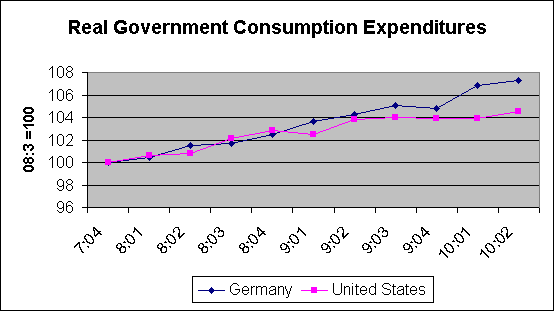August 27, 2010
Suppose Paul Krugman or Bob Herbert got just about everything wrong in their columns on a regular basis. Suppose that they were not just wrong on peripheral matters, but on facts that were central to their argument. What would happen?
These progressive columnists would almost certainly be sent packing. There are plenty of smart articulate progressive writers. If these two couldn’t get their facts right, the NYT would have no problem finding someone to replace them who could.
Apparently, the same does not apply to conservative columnists as demonstrated by David Brooks. He gets his facts wrong on a regular basis and not just on side matters. Often the mistake is on an issue that is the central point of his column.
He gave us a beautiful example today. He told readers that the United States had decided to go the big government route to recover from the downturn whereas Germany had gone the austerity route. Brooks tells readers:
“This divergence created a natural experiment. Who was right? The early returns suggest the Germans were.”
He then points to Germany’s 9.0 percent growth in the second quarter compared to the near stagnation in the U.S. economy.
Brooks is good enough to note that, “results from one quarter do not settle the stimulus/austerity debate,” but let’s ask if they show anything.
The chart below shows the OECD’s estimates of real government expenditures for Germany and the United States since the third quarter of 2008.

Yes, that’s right. David Brook’s austerity model has seen a sharper increase in government spending since the crisis than his stimulus model. This suggests that the Germany/U.S. comparison might be somewhat less compelling then he implies.
How long would Krugman or Herbert be working at NYT if they made mistakes like this on a regular basis?







Comments